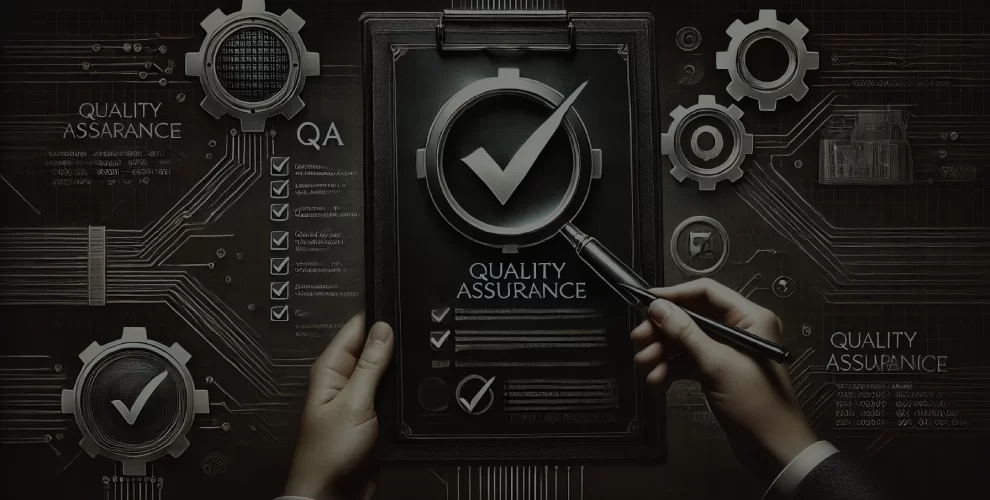
How to Become a QA Engineer: Essential Skills, Tools, and Career Path
Table of Contents
Introduction
Welcome to WikiGlitz! If you’re considering a career in Quality Assurance (QA) engineering, you’re in the right place.
QA engineers play a critical role in software development by ensuring that products meet quality standards before they reach consumers.
This comprehensive guide will walk you through the essential skills, tools, and steps needed to become a successful QA engineer. Let’s dive in!
Key Takeaways
- Understanding the Role: QA engineers are crucial in software development, ensuring products meet quality standards through rigorous testing.
- Essential Skills and Tools: QA engineers need both technical skills (like programming and automation tools) and soft skills (like attention to detail and communication).
- Career Path: Starting from entry-level roles like QA intern, progressing through mid-level and senior positions, and specializing in areas such as performance testing or QA architecture.
What is a QA Engineer?
A QA (Quality Assurance) engineer is responsible for testing software to ensure it meets the required standards of quality, performance, and reliability. QA engineers identify bugs, ensure functionality, and help improve the user experience by rigorously testing software products.
Key Responsibilities of a QA Engineer
- Test Planning: Designing and developing test plans and test cases.
- Manual Testing: Executing test cases manually to identify bugs and issues.
- Automated Testing: Using automation tools to execute tests and validate results.
- Bug Reporting: Documenting and reporting defects and issues found during testing.
Essential Skills for a QA Engineer
Technical Skills
- Understanding of Software Development Life Cycle (SDLC):
- Knowledge of different stages of SDLC and the role of QA in each stage.
- Programming Languages:
- Familiarity with programming languages like Java, Python, or JavaScript for automated testing.
- Automation Tools:
- Proficiency in using automation tools like Selenium, QTP, or TestComplete.
- Manual Testing Techniques:
- Strong skills in manual testing methods to identify and document bugs.
- Database/SQL:
- Ability to write SQL queries to validate data integrity and perform backend testing.
Soft Skills
- Analytical Thinking:
- Strong analytical skills to understand complex systems and identify root causes of issues.
- Communication:
- Excellent verbal and written communication skills to collaborate with team members and document findings.
Popular Tools Used by QA Engineers
Automation Tools
- Selenium:
- An open-source web application automation tool that is frequently used.
- QTP (Quick Test Professional):
- An automated functional testing tool by Micro Focus.
- TestComplete:
- A comprehensive tool for automated UI testing.
- Appium:
- An open-source tool for automating mobile applications.
Test Management Tools
- TestRail:
- A test management tool for organizing and managing test cases and plans.
- Zephyr:
- A test management tool integrated with JIRA for managing and tracking testing activities.
- Quality Center (QC):
- An enterprise test management tool by Micro Focus.
Performance Testing Tools
- JMeter:
- An open-source instrument for load and performance testing.
- LoadRunner:
- A performance testing tool by Micro Focus for simulating user activity and measuring system performance.
- Gatling:
- An open-source load testing tool designed for ease of use and performance.
Steps to Build a Successful Career in QA Engineering
Education and Training
- Obtain a Relevant Degree:
- Usually, one needs a bachelor’s degree in computer science, information technology, or a similar discipline.
- Gain Certifications:
- Consider obtaining QA certifications like ISTQB (International Software Testing Qualifications Board) to enhance your credentials.
- Online Courses and Bootcamps:
- Enroll in online courses and bootcamps to learn about the latest testing tools and methodologies. Platforms like Coursera, Udemy, and edX offer comprehensive courses on QA engineering.
Gain Practical Experience
- Internships:
- Look for internships or entry-level positions to gain hands-on experience in QA.
- Personal Projects:
- Work on personal or open-source projects to build your portfolio and gain practical skills.
- Freelancing:
- Consider freelancing to gain diverse experience and exposure to different testing environments and challenges.
Build Technical Skills
- Learn Programming:
- Enhance your programming skills by learning languages commonly used in automated testing.
- Master Testing Tools:
- Gain proficiency in popular QA tools and technologies used in the industry.
- Stay Updated with Emerging Technologies:
- Keep abreast of emerging technologies like AI and machine learning, which are increasingly being integrated into QA processes.
Develop Soft Skills
- Improve Communication:
- Work on your communication skills to effectively collaborate with team members and stakeholders.
- Enhance Problem-Solving Abilities:
- Practice critical thinking and problem-solving to identify and resolve issues efficiently.
- Adaptability:
- Be open to learning new tools and methodologies as the field of QA is constantly evolving.
Stay Updated with Industry Trends
- Continuous Learning:
- Keep up with the latest trends and advancements in QA and software development.
- Join Professional Communities:
- Participate in QA forums, attend webinars, and join professional organizations to network and learn from peers.
- Attend Conferences and Workshops:
- Attend industry conferences and workshops to gain insights from experts and stay updated on the latest best practices.
Career Path for QA Engineers
Entry-Level Roles
- QA Intern:
- Gain foundational experience and learn the basics of QA.
- Junior QA Engineer:
- Assist in test planning, execution, and reporting under the guidance of senior engineers.
Mid-Level Roles
- QA Engineer:
- Independently design, execute, and manage test cases and processes.
- Automation QA Engineer:
- Focus on developing and executing automated tests to enhance testing efficiency.
Senior-Level Roles
- Senior QA Engineer:
- Lead QA projects, mentor junior engineers, and oversee test strategies.
- QA Lead/Manager:
- Manage QA teams, develop test strategies, and ensure overall product quality.
- QA Architect:
- Design and implement comprehensive QA frameworks and strategies for large-scale projects.
Specialized Roles
- Performance Test Engineer:
- Specialize in performance and load testing to ensure system scalability and reliability.
- Security Test Engineer:
- Focus on identifying and mitigating security vulnerabilities in software applications.
- Mobile QA Engineer:
- Specialize in testing mobile applications across different platforms and devices.
Conclusion
Becoming a QA engineer is a rewarding career path that offers opportunities to work on diverse projects and technologies.
By developing the essential technical and soft skills, gaining practical experience, and staying updated with industry trends, you can build a successful career in QA engineering. WikiGlitz is here to support you on this journey with valuable insights and resources.
FAQs
What is a QA engineer?
A QA engineer is responsible for testing software to ensure it meets quality standards and identifying bugs and issues.
What skills are essential for a QA engineer?
Essential skills include understanding SDLC, programming, using automation tools, attention to detail, analytical thinking, and communication.
What tools do QA engineers use?
Popular tools include Selenium, QTP, TestComplete for automation, JIRA, TestRail, Zephyr for test management, and JMeter, LoadRunner for performance testing.
How can I start a career in QA engineering?
Start by obtaining a relevant degree, gaining certifications, building technical and soft skills, and gaining practical experience through internships and personal projects.
What is the role of a QA architect?
A QA architect designs and implements comprehensive QA frameworks and strategies for large-scale projects, ensuring the quality of complex systems.
Why is continuous learning important in QA engineering?
Continuous learning is essential to keep up with the latest trends, tools, and best practices in QA, ensuring that you can effectively address new challenges and technologies.
Want to keep up with our blog?
Our most valuable tips right inside your inbox, once per month.
Error: Contact form not found.
WikiGlitz Team
Welcome to WikiGlitz, your ultimate destination for tech insights and innovation. Our expert team is dedicated to delivering free resources and professional advice on various technology topics, including Artificial Intelligence, Cyber Security, Cloud Computing, and more. We strive to empower our readers with up-to-date information and practical guidance, ensuring you stay ahead in the rapidly evolving tech landscape. At WikiGlitz, we are passionate about making complex technology accessible to everyone. Our team of seasoned experts curates content that is both informative and engaging, helping you understand and leverage the latest tech trends. Whether you're a tech enthusiast or a professional, WikiGlitz is your go-to source for reliable, expert-driven content. Join us on this journey to explore and embrace the future of technology.





